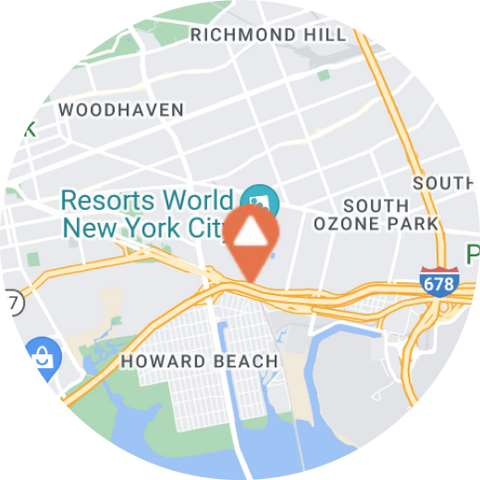Let's dive into the morning-after pill. You may have heard of it and used it at one point, but how much do you really know about how it works? Don't worry—you're not alone if you're a bit fuzzy on all the details. In this article, we break everything down, starting with how it works for pregnancy prevention and how it differs from other types of birth control. Without further ado, let's answer the question, "How do morning-after pills work?"
Understanding the Morning After Pill
The morning-after pill or tablet is a type of emergency contraception. It is not designed to be your go-to birth control method (we'll cover that in later sections) but more of a backup plan for when things don't go as planned. Maybe the condom broke when you were getting hot and heavy, or maybe you were taking a break from your regular birth control pills—things happen! The morning-after pill is here for you when the unexpected happens.
While the morning-after pill can be quite helpful in preventing pregnancy, it does not protect you against sexually transmitted infections (STIs). That said, make sure you have other forms of protection—such as condoms, to practice safe sex and protect your health.
Types of Morning After Pills
There are two types of morning-after pills to be aware of, including:
- Levonorgestrel (Morning After Pill® by Cadence OTC, Plan B One-Step, Take Action): You may have come across these morning-after pills before, as they're pretty common. You can take it up to 72 hours after unprotected sex, but the sooner, the better! So even the morning-after pills should be taken as soon as possible. This medical product is available over the counter at your local convenience store, pharmacy, or grocery store, and the best part is that no prescription or ID is required!
- Ulipristal acetate (Ella): Now, for this morning-after pill, you do need a prescription from your physician. It can be taken up to five days after having unprotected sex, although you can take it much sooner to increase its effectiveness. This pill can be more effective if you're in the second half of your menstrual cycle. Contact your health care provider for more information on how to obtain a prescription.
Over-the-Counter Availability
Good news: You can find levonorgestrel-based pills at your local pharmacy, grocery store, or even convenience store without visiting your healthcare provider. There's no prescription required for these, so it's super easy to get them if the unexpected happens. But, on the flip side, Ella requires a bit more preparation since you'll need a prescription from your doctor or nurse practitioner to get it. If you’re under the age of 19, you’ll need to reach out to your pediatrician or pediatric nurse practitioner to get a prescription.
Quick tip: If you think you'll need to use emergency contraception again in the future, buy one ahead of time. By doing this, if you have another "uh-oh" moment, you'll already have a pill in your kitchen cabinet or nightstand. It's better to be safe than sorry, right?
How the Morning After Pill Prevents Pregnancy
You're probably wondering, "How does the morning-after pill work?" Well, let's get into it. Both levonorgestrel- and ulipristal acetate-based pills work to delay ovulation. What is ovulation? It’s the release of a fresh fertilizable egg from your ovary. When your ovary ovulates, it releases an egg. If you delay ovulation, there's no egg, and sperm has nothing to fertilize.
If you're already ovulating, levonorgestrel will not work to prevent pregnancy because the chickens have already come home to roost—if you know what we mean.
Hormonal Impact
It's time to dive into the science behind the morning-after pill. So, the OTC emergency contraceptive pill works by using a synthetic hormone, Levonorgestrel, to trick your ovary into holding on to the new egg and not releasing it temporarily. Levo-norgestrel is like the natural hormone progesterone found in the human body.
Ella, as you might remember, contains ulipristal acetate. This works a bit differently than levonorgestrel. It actually blocks progesterone from working.
Effectiveness
Like any meds you take, you probably want to know how well it works in your body. Fortunately, the morning-after pill is pretty effective. However, its effectiveness depends on a few factors, such as how soon you take it after unprotected sex and where you're at in your menstrual cycle.
The research says that levonorgestrel-based morning-after pills have an 87% success rate when taken within 72 hours after sex without a condom. Pretty high, right?
Ella has a 98-99% success rate (1-2% pregnancy rate) if you take the pill within 120 hours (or five days) of unprotected sex. You get a little more wiggle room with this morning-after pill, which is super nice.
If you were expecting a 100% success rate for morning-after pills, we're sorry to disappoint you. Nothing is ever 100% guaranteed when it comes to emergency contraception. But you can increase your chances of not getting pregnant if you take them right after unprotected sex. Also, they're just a really good backup plan when things don't go as planned or if you are caught off-guard.
Difference Between an Abortion Pill and the Morning After Pill
Did you know that the morning-after pill and the abortion pill are completely different? If you didn't know, don't worry—no judgment here! The morning-after pill, as we've stated before, prevents pregnancy. It won't work if you're already pregnant, but it won't harm your growing baby if you're already pregnant.
Now, the abortion pill (also known as medication abortion) is what you would take after your pregnancy has been confirmed. It is a safe and effective way to end an early pregnancy if you do not want to continue this pregnancy (which is completely fine!).
Using the OTC Morning After Pill Correctly
Now that we've answered, "How does a morning-after pill work?" we can dive into how to use this emergency contraception. It's very important to know how to use the morning-after pill properly so it can work as effectively as possible. And don't fret—using morning-after pills is not rocket science. It's super easy to use to get the results you're looking for.
When to Use
When should you use the OTC morning-after pill? The answer is (drumroll please): as soon as possible! The quicker you pop one of these pills, the better it works, and you don’t need to wait till the morning after if you already have it on hand or if it’s available at a 24-hour convenience store nearby. And, as we mentioned in earlier sections, levonorgestrel-based pills are the most effective within 72 hours, while ulipristal acetate-based pills can be taken up to 120 hours after unprotected sex. Timing is key to ensuring the pill works as it should, so don't wait too long to take it.
How to Take
When it comes to the morning-after pill, it's as easy as downing one pill with some water. Some pills may require two doses (meaning you'll have to take them twice), so follow the instructions on the box from the pharmaceutical brand or your doctor's advice.
Side Effects
Here's the not-so-fun part of taking morning-after pills. Like any medicine you take, there's a chance you might experience some unwanted side effects (although it's quite rare to have any). The good part is that the morning-after pill side effects typically go away a few days after the medication is eliminated from your system.
Here are the side effects you might experience while taking this emergency contraceptive:
- Nausea
- Vomiting
- Light vaginal bleeding
- Tiredness
- Belly cramps
These symptoms often resolve without additional medication. If you vomit within two hours of taking a morning-after pill, make sure you take another pill. This is because the medication has not been in your system long enough to stop ovulation.
The Morning After Pill vs. Regular Birth Control
While they're both forms of contraception, the morning-after pill is much different than your regular birth control pill. The main difference between the two is that the morning-after pill is designed for emergencies, while regular birth control is great for ongoing pregnancy prevention.
But let's break it down a bit further so you have a solid understanding of how they differ:
- Effectiveness: Regular birth control methods, such as birth control pills, intrauterine devices (IUDs), implants, and even condoms, are designed to prevent pregnancy from occurring in the first place, day in and day out. Regular birth control pills are 99% effective when used as directed. On the flip side, the morning-after pill is just a nice backup plan for when you have sex without contraception or if the condom breaks. Emergency contraception is only about 87% effective.
- Frequency of use: If you're taking regular birth control, you're likely either taking a pill every day, getting a shot every three months, or having an IUD that lasts for several years. But with the morning-after pill, it should only be used for emergencies. You can use it more than once, but you shouldn't make it your go-to birth control method.
- Hormonal differences: Many regular birth control methods release a steady stream of hormones to prevent ovulation from occurring. The morning-after pill, on the other hand, gives you a one-time, high dose of hormones to temporarily delay ovulation. Because of this, you're more likely to experience those nasty side effects or changes in your menstrual cycle, such as your period starting earlier or later than usual.
Simply put, regular birth control is your best bet for preventing pregnancy in the long run, while the morning-after pill is a safety net that catches you when you need it but shouldn't be relied on if you are having sex regularly.
Myths and Misconceptions
Unfortunately, there are tons of myths and misconceptions about the OTC morning-after pill, and it can be hard to figure out what's fact and what's fiction.
So, without further ado, let's clear some of them up:
- Myth: The morning-after pill causes an abortion.
- Fact: The morning-after pill actually prevents pregnancy, not end it. This emergency contraception works by delaying ovulation, so there isn't an egg to fertilize. It won't work if you're already pregnant, nor will it harm an existing pregnancy.
- Myth: You can only take the pill the morning after.
- Fact: Despite the name, you don't have to take it the following morning. Depending on which pill you take, you have between 3-5 days to take it after unprotected sex. The sooner you take it, the better. You can take it the moment after or up to 72 hours after, so you're not out of options if it's not literally the "morning after."
- Myth: The morning-after pill messes up your fertility.
- Not at all! Taking a morning-after pill won't mess with your fertility in the long run. It is designed to be a one-time use medication to prevent pregnancy and won't mess with your ability to get pregnant in the future.
That's the low-down on how the morning-after pill works. If you have further questions about this emergency contraception, please talk to your physician for professional medical advice and healthcare. You can also visit a Planned Parenthood center near you to learn more information about birth control methods overall.



